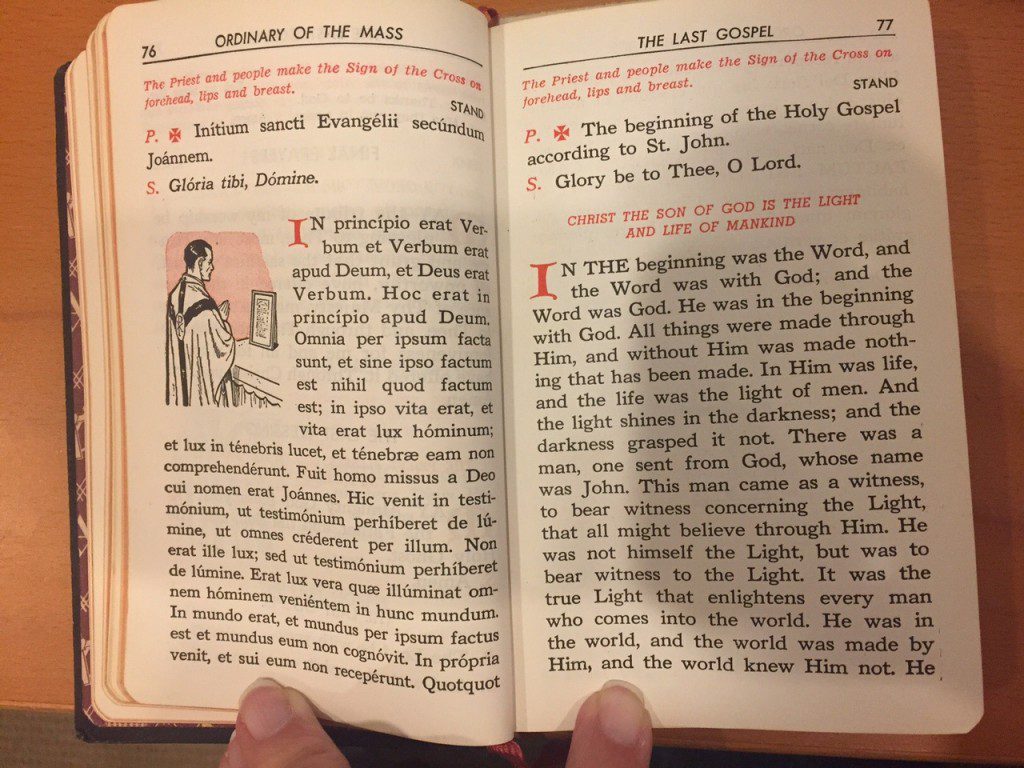So this is the time of year when media types, and pundits, and politicians, attempt to conjure up a “true meaning of Christmas” that can appeal to nonbelievers, and provide a way for public figures to celebrate the holiday without feeling like they’re promoting one religion over another.
Some people latch on to the tradition of candles, and the identification of Christ as Light, and connect this to Hannukah, and say that Christmas is all about hope in dark times — whether it’s the Christ child providing hope, or a miraculously long-burning oil providing hope, we should all continue to hope even when things seem bleak.
Or people latch onto the words of the angels and say that Christmas is about Peace on Earth, and even nonbelievers can see Christmas as a time to celebrate peace.
Or we take the Christ child and make this metaphorical: the hope that each newborn child offers us.
Or we detach the customary gift-giving, turn Christmas into that date on the calendar when we customarily exchange gifts, and say that Christmas is “really about” it being better to give than receive.
I was thinking of this in the context of Obama’s fluff at a commemoration of the 50th anniversary of “A Charlie Brown Christmas” — you know, the classic show in which Charlie Brown plaintively asks what Christmas is all about, and Linus responds by reciting from Luke, “For unto you is born this day in the City of David a Savior, which is Christ the Lord.” What did Obama say? As Fox quotes him:
“For half a century, people of all ages have gathered around the tv to watch Charlie Brown, Lucy, Linus and the rest of the gang teach us the true meaning of Christmas,” Mrs. Obama said during a taping of ABC’s “It’s Your 50th Christmas, Charlie Brown.”
“They teach us that tiny trees just need a little love, and that on this holiday we celebrate peace on Earth and goodwill toward all,” he said. . .
“Because as Linus knows, that’s what Christmas is all about,” Mrs. Obama declared.
The Obamas took the one Christmas show with an explicitly Christian message, and removed it.
And I’m reminded of the first time I attended mass on Christmas Day, as an adult, and discovered that the readings were different. No nativity story now – but instead “in the beginning was the Word” from John 1. And the priest, in his homily, rather than talking about babies, and hope, and light, urged us to stop and think how profound it was that the Word became flesh and dwelt among us. The Incarnation is radical, that Jesus, in becoming human, bridged that gap between God and man. And the Incarnation is something that makes no sense at all to Jews, or Muslims, or the nonreligious.
(Incidentally, some years ago, Dad gave me his missal from pre-Vatican II days, and I learned that this passage was called the Last Gospel, and read every Sunday at the end of mass, to emphasize its importance.)
Consider this: I spent some time last night trying to find a description of the “true meaning” of Ramadan. There are lots of pages on the value of fasting for spiritual growth, and traditions that Muslims follow, of trying to be more devout, of reading the Quran, and trying to make the whole thing more than just a trial and obligation. It’s easy to find information on special prayers and customary meals and greetings and so forth. But what’s the meaning of it all? Ramadan marks the “birth” of Islam, when Muslims believe that God first spoke to Muhammad.
If you were invited to a Ramadan celebration, you could easily enjoy the event as a spectator, and share in the food, the conversation, the music and dance if applicable. But could you meaningfully share in the celebration of the “true meaning” of Ramadan if you don’t actually believe that God revealed himself to Muhammad?
Consider, too, that Christmas has become a holiday of sorts in such places as China and Japan. But does it “mean” anything there? No, of course not. It’s an occasion for a party, for decorations, for entertainment, with as little need for anyone to find any “meaning” in it as if we were to start speaking of the True Meaning of Halloween.
Even the “true meanings” that have become popular to attach to Christmas to make it more generic — Peace on Earth, or The Season of Giving: are these notions really deeply-felt and meaningful to those who engage in Christmas traditions from a secular point of view, or is it more accurate to say that charitable giving is a Christmas tradition, and wishes of peace likewise so?
Consider how Christmas is celebrated in movies and on TV — as a party, a festive meal, an exchanging of gifts, maybe even a visit to a homeless shelter. Is this meaning? Or is it a set of traditions with a sentimental feeling attached to them, a shadow of meaning from past beliefs?














